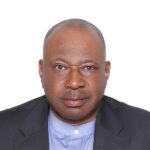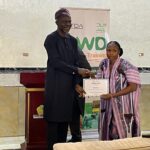By Angela Atabo
The Gender and Education Parity Advocacy Project (GEPAP) says it will empower youths with skills toward the promotion of gender and education equality in North Central part of the country.
Rahmat Abdullahi, Project Lead, GEPAP, said this at the GEPAP Stakeholders’ Workshop in Abuja on Monday.
Abdullahi, also an alumna of the International Visitor Leadership Programme (IVLP) in the U.S, said that selected youths would be equipped with the necessary skills to work to develop their communities in the North Central.
She said that the programme was to address the need for gender and education because of the rising rate of out-of-school children, especially girls, in the zone.
“The North Central region of Nigeria has a population of about 25 million people made up of 52 per cent female and 48 per cent male in gender distribution, according to the National Population Commission (NPC).
“However, in spite of the high population of women, girls suffer from limited access to education.
“A 2020 report by UNICEF affirms that one of the highest out-of-school rates for girls in the country is found in the region, with only 47 per cent of girls enrolled in primary school.
“The Gender and Education Parity Advocacy Project aims to address this issue by equipping young development advocates and activists from the region with the necessary skills to promote gender and education equality in their communities,’’ she said.
Abdullahi added that the project was also to create a more inclusive environment for girls in the region as well as empower them to reach their full potential through education.
“This will be done through advocacy and research for policy recommendations, innovation, and community engagements.
“The stakeholders from the public and private sectors critical to the development of educational policies and programmes will be engaged in a dialogue to get their support for the project.
“They will proffer lasting solutions to decreasing the number of out-of-school girls in the zone.
“Today’s event is a starting point of that engagement, “she said.
The GEPAP lead said the project would begin with the selection of participants who would be engaged in a comprehensive three-month training programme on “Gender and Education Fellowship.”
Speaking, Mr Shakir Akorede, a development communications consultant, said the fellowship would equip the participants with the critical skills to develop and implement effective advocacy campaigns for the promotion of gender and education parity in their communities.
“We will conduct research to examine community needs and evaluate the impact of existing programmes in fostering gender and education equity,” he said.
Akorede said that the findings of the research through direct community work would be used to develop a policy document, which would be made available to policymakers in all states in the North Central including the Federal Capital Territory.
He said the fellows would engage the communities around them in educational activities focusing on behavioural change, addressing the socio-religious and other institutional impediments faced by girls on the subject matter.
He said they would also educate their community members on the importance of gender parity and empower them to take actions toward promoting gender and education equality in their communities.
Mr Hamzat Lawal, the Chief Executive Officer, Connected Development (CODE), said the initiative was timely, because the North Central was bearing the brunt of the migration caused by insecurity from the North East and West.
“The infrastructure in Nassarawa, Niger and the FCT cannot take this influx of people because of migration.
“The consequence is that the girls that are already in school will not be able to go to school, increasing the number of out-of-school children and gender-based violence with the girls prone to early marriage,” he said.
Lawal said that galvanising key stakeholders in the education sector, investing in knowledge transfer and working with a network of young people would help in the promotion of gender and education equality in the North Central. (NAN)
Edited by Chidi Opara/Ali Baba-Inuwa











